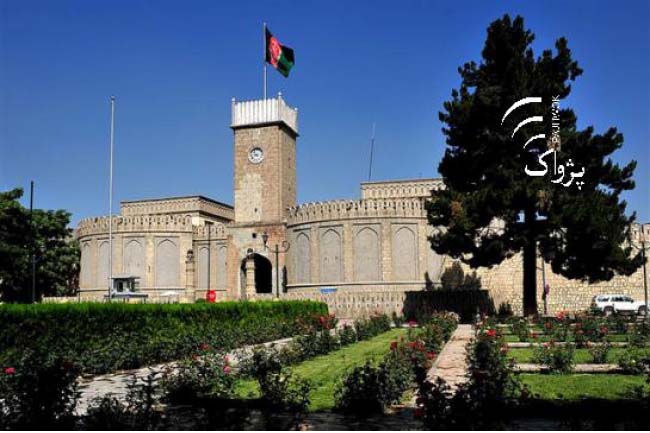The centralized political system recognized one of the key factors to deepening the crises in Afghanistan. The reason is that the highly centralized model that was chosen for Afghanistan has neither served the people nor the government itself. The current model divided the country into 34 provinces, 399 districts, approximately 217 municipalities, and roughly 40,020 villages. Although the number of provinces and districts has changed, the basic form of the government predates the 2004 constitution and can be traced to the reign of Abdur Rahman Khan (1880–1901) and the 1923 constitution, Afghanistan’s first. The current text is nearly identical to the constitution promulgated in 1964 by Zahir Shah. Therefore, there is a consensus within and outside Afghanistan that the idea of centralization was potentially a major strategic blunder for the new Afghan political structure. Given Afghanistan’s multi-ethnic society along with its diverse political realities, the centralized political system has further intensified the crisis and led to political turmoil and instability. One of the main fallouts of the system were the past presidential elections of 2004, 2009 and 2014 that remained contentious due to the centrality of power.
Historically, the greater the distance from Kabul and the country’s main urban centers, the weaker the writ of Afghan governments has tended to be. There have been several causes of its limited reach, including the existence of powerful local elites, adjacent foreign empires, strong tribal structures, the absence of infrastructure adequate for the country’s rugged geography and at times inhospitable climate, and limited ability to project military power. While some of these factors have been overcome in the course of time, many remain. This has created a society in which power relations between national, provincial and local elites have tended to be established through negotiation and compromise rather than by decree and (administrative) enforcement. Although the make-up of local elites has profoundly changed during Afghanistan’s different episodes of (civil) war, communities continue to expect an appreciable measure of autonomy and self-governance. The limited reach of the state combined with local expectations of autonomy also mean that policies, laws and degrees emanating from Kabul do not necessarily gain traction outside of the capital, let alone outside of the country’s major urban centers.
Technically, there are no local governments in Afghanistan except for municipalities, at least not if we define local governments as autonomous corporate entities with some binding decision-making power and some discretion over their financial resources. Afghans have nothing like state and county administrations, with their elections, levies, assessments, and budgets. What they have instead are provincial and district offices of the central state: Provincial and district-level government in Afghanistan is no more than the aggregation of governors’ offices and the provincial and district-level representatives of the country’s “line ministries”.
Under current presidential system, political power is highly concentrated in the president’s office, leaving regional officials with little political, administrative or financial authority. Provincial governors are appointed by the president and council leaders are not elected officials. The foundation of the new political order, based on a centralized state given Afghanistan’s geography and polity, was problematic from the very start. As proved later, a highly powerful presidential system has been detrimental for Afghanistan and its political future.
By and large, the country such as Afghanistan which is lacking a high political culture, centralization has failed to bring peace and stability that the country desperately needs. The effectiveness of National Unity Government (NUG) has also suffered unforeseen setbacks due to this political centralization. The NUG which was formed following the last year’s disputed elections did not produce any winner. Despite the fact the elections did not grant uncontested authority to any of the candidates, the political camp of President Ghani has sought to hold onto power. This has, in turn, created a lack of confidence and cooperation between the Chief Executive Dr, Abdullah and President Ashraf Ghani as the two main leaders of the NUG.
Now, the NUG is unable to perform well is because of the centrality of the power; too much concentration of authority within the presidential palace has led to the relegation of key ministers such as Defense and Interior whose authority has been significantly curtailed. This has further added to mistrust among the leaders of the national unity government particularly in administrative tasks and appointments of the senior officials. These developments are taking place at a time when good governance in order to stabilize the country is most needed. That is only possible through a stable political system with greatest representation that can serve the people. Political stability remains the major prerequisite for the security and economic development of Afghanistan. Without a stable political system that can deliver for the people, the country will never achieve the envisioned peace and prosperity.
Therefore, the optimum solution for a politically secure and economically stable Afghanistan, that is not only important for the security and prosperity of its own but also for the region, is devolution of political power. As noted, centralization has been at odds with Afghanistan’s social, political and economic realities and has not brought stability thus far. Hence, a decentralized system would ensure that provincial governors are independent, their councils are legislative, and that they are elected officials by the people. This would lead to good governance and successful exercise of power in close cooperation with local and tribal leaders in 34 provinces nation-wide. Likewise, constitutional amendment that entails creation of a prime ministerial position has become the urgent need of time. That would be a step in the right direction towards decentralization and – concomitantly – a strong, sustainable and representative.

